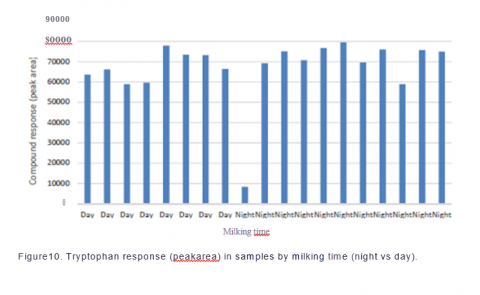Night milk - assessing the reliability and economic benefit
With conventional milk supply affected by erratic markets and volatile milk prices, the need to identify unique selling points (USPs) is ever more important within the dairy sector. Milk has long been known and used to promote sleep. Melatonin is a hormone produced in the tryptophan/serotonin pathway and helps to control sleep and wake cycles and is produced naturally by the cow in response to darkness.
Two dairy farmers in Bridgend wanted to see whether their cows have higher levels of melatonin in the milk that is produced during the night. They milk their cows three times a day and one of these milkings occurs during the night. This made it simple to sample the milk produced during the night to see whether the ‘night milk’ contains sufficiently high levels of melatonin to brand the milk for its sleep promoting properties.
The project demonstrated that in a commercial farm setting, the production of melatonin–rich milk may be more complicated than other studies have suggested. During the project, the samples of night milk contained levels of melatonin that are higher than those that naturally occur in humans but they did not meet the required 1mg threshold required to market the milk as melatonin-rich. The farmers also found that the season or the cows’ diets did not impact melatonin levels. But on a more positive note, pasteurisation did not affect melatonin levels so if a way is ever found of manipulating melatonin levels in milk it will not be negatively affected by the pasteurisation process.
For more information on the project results see the documents below.


